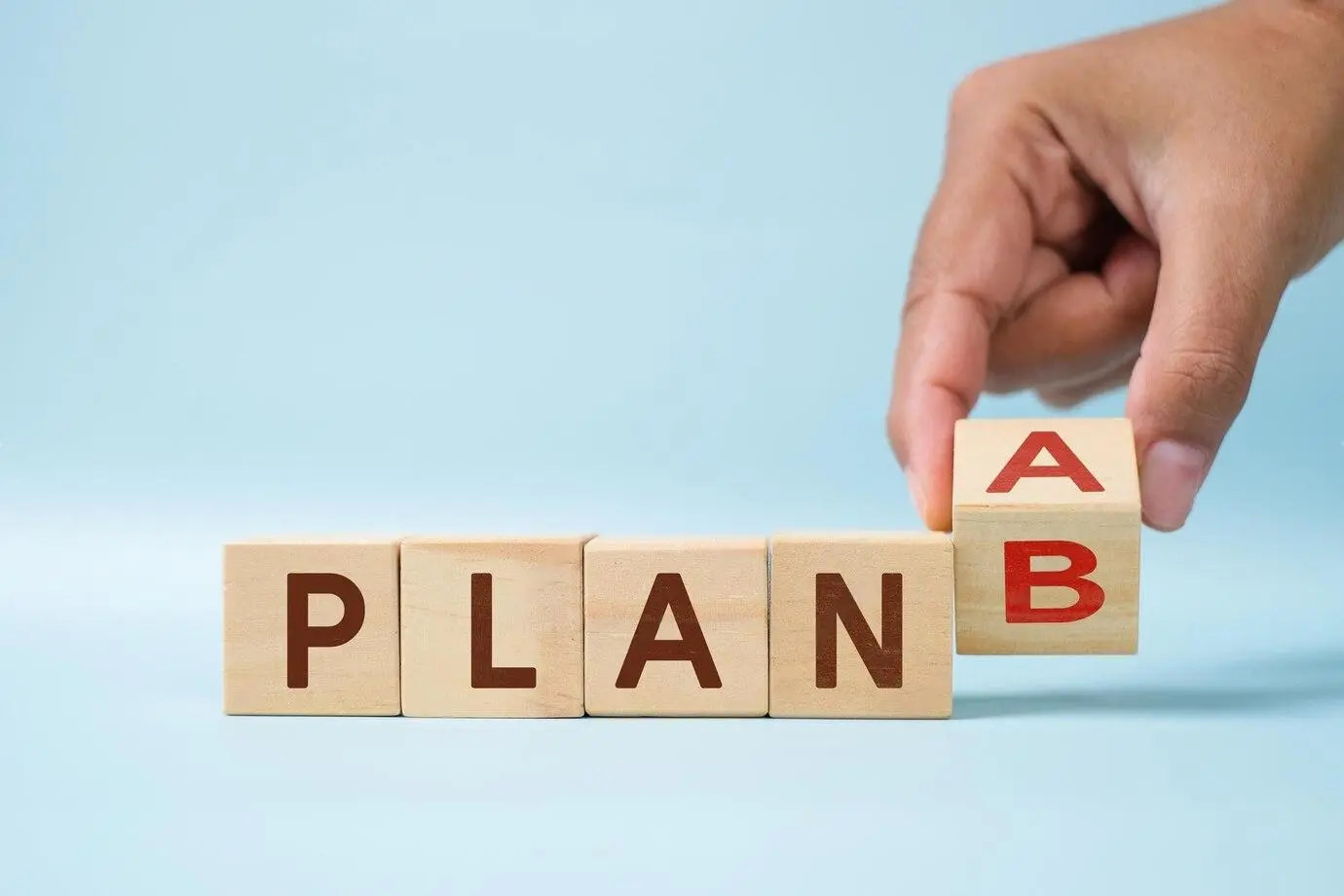What is contract negotiation?
Contract negotiation is a bit like piecing together a jigsaw puzzle. You have different parts, and you need to fit them together just right to see the whole picture.
Before you even start, you gather all the puzzle pieces and lay them out, making sure you understand what the final picture should look like. That’s your preparation.
When you start connecting the pieces, you might have to adjust and try different combinations to make everything fit. It’s like a conversation where you talk about terms, prices, and conditions.
Sometimes, things don’t fit perfectly, and you need to find common ground, just like when you compromise with someone. Trust and clear communication help you connect those puzzle pieces, just like in contract negotiation.
In the end, the goal is to create a clear and complete picture, just like a well-crafted contract that’s fair to everyone involved. It’s not about winning; it’s about finding the right pieces and putting them together for a successful outcome.
In this article, we’ll deeply dive into negotiation strategies that work. We’ll start by looking at the basics and then move on to discussing different strategies like the Win-Win approach and BATNA. We’ll also discuss the use of technology in the negotiation process. Plus, we’ll answer some common questions you might have about contract negotiation. So, get ready to unlock the secrets to success in the world of contracts.
The Fundamentals of Contract Negotiation

A. Setting the Stage for Success
To have a successful contract negotiation, think of it like building a strong base. You need to be well-prepared before you start. This means you understand what’s going on, what you want, and what you won’t agree to. Both sides need to be clear about what they expect and stick to it.
When you have clear goals, your negotiations are more likely to work out. It’s not just about knowing what you want and don’t want but, also about knowing what the other side might say and being ready for that. It’s like being a detective and figuring out what could happen next. This way, you’ll feel more confident during the negotiation.
B. Key Players and Their Roles
Negotiations involve different stakeholders, each with their specific roles. Lawyers, procurement experts, and business leaders all have important jobs. They need to work together smoothly to make negotiations go well. An article in the Harvard Law Journal highlighted how trust and good relationships with the other party are essential.
In complicated negotiations, it’s crucial to know who does what. Lawyers are the experts on contract details, procurement folks handle the money side, and executives make the big decisions. Working well together is super important, and that means building trust and strong working relationships. It’s like teamwork in sports; when everyone plays their part and trusts each other, the game goes smoothly.
C. The Power of Effective Communication
In contract negotiation, clear communication is the secret sauce that makes things work. It’s not just about what you say; it’s also about how you say it. If you can explain your thoughts clearly, listen well, and understand non-verbal signs, it can make a big difference in the outcome.
It’s not just about the words you use, but also understanding things like body language and tone of voice. It’s like having a conversation where not only the words matter but also how someone says them and what their body language shows. Emotions play one of the biggest parts in a contract negotiation.
D. Transparency and Ethical Conduct
Trust is really important in negotiations. It’s like the solid ground you build your negotiations on. To have trust, you need to be open and honest, following good rules. Trust is what makes negotiations work well.
If you try to be tricky or dishonest, it can break the trust, making it hard to find good solutions that work for everyone. Being fair and honest isn’t just a good thing to do; it’s also a smart way to negotiate.
Related Article: KPIs for Successful Contract Management
Contract Negotiation Strategies: Unlocking Bargaining Power

Your skills and tactics can be as influential as your bargaining power. It’s like a game of chess where strategy and moves matter. So, let’s explore how to excel at the bargaining table with top-notch negotiation skills.
- Active Listening: Imagine negotiation as a verbal chess match, where each move counts. Active listening is your ace in the hole. By truly hearing what the other party says, you gain insights that can tip the scales in your favor.
- Business Negotiations: Negotiating business contracts is like navigating a maze. Different types of agreements demand different approaches. Whether it’s an employment contract, a supply chain agreement, or a complex business partnership, adapt your tactics accordingly.
- Legal Advice: Just as chess players rely on their coach’s advice, in negotiation, having access to the legal team’s advice is invaluable. A good law firm can provide guidance and review agreements to ensure they meet industry standards.
- Contract Management Software: Think of contract management software as your trusty chessboard. It streamlines the contracting process in real time, helping you manage the details of the contract draft, revisions, and terms of use.
- Successful Negotiation Strategies: Successful negotiators don’t just aim for a good deal; they aim for the best deal. They understand that the burden shifts as the negotiation progresses and look for better ways to shape the final agreement.
- Binding Contracts: In negotiations, your goal is to reach a legally binding contract. Your bottom line is to ensure that the terms of the contract align with your top priorities, reducing supply chain vulnerabilities and resolving disputes effectively.
- Microsoft Word and Google Docs: These tools are like your pawns in negotiation. They help in drafting documents and managing revisions efficiently, ensuring you have enough time to review complex contracts.
- Business Relationships: Successful negotiation isn’t just about securing a deal; it’s about building a strong business relationship. This is a good idea because it can lead to future contracts and higher salaries.
So, as you sit at the negotiation table, remember that negotiation tactics and skills are your best weapons. Use them wisely to secure the best possible terms in a legally binding contract that safeguards your interests and sets the stage for a fruitful business relationship.
Win-win strategy in contract negotiation

At its core, the Win-Win strategy emphasizes collaboration and problem-solving to create outcomes that benefit all parties involved. It’s a stark departure from the win-lose mentality where one side’s gain is the other’s loss.
The Win-Win strategy recognizes that there’s a shared interest in reaching an agreement that maximizes collective benefits in many negotiations. It’s about moving beyond a zero-sum game to create value for everyone involved. A win for both sides is the ultimate goal.
Practical Steps for a Win-Win Negotiation
- Identify Shared Goals: The first step in a Win-Win negotiation is to identify shared goals. What do both parties want to achieve, and where do their interests align? This collaborative mindset sets the stage for cooperation.
- Active Listening: Effective communication is key. Active listening involves not only hearing what the other party says but also understanding their perspective and acknowledging their concerns.
- Exploration of Options: In Win-Win negotiations, parties should explore multiple options. This requires creativity and a willingness to think outside the box. By considering various alternatives, both parties can find a solution that meets their needs.
- Agree on Mutual Gains: The ultimate goal is to reach an agreement where both parties see gains. This often involves trade-offs and concessions but should result in an outcome that benefits everyone.
- Put It in Writing: A well-drafted contract that reflects the negotiated terms is essential. This document should be clear, concise, and leave no room for ambiguity. Legal tech solutions can streamline this process and ensure that the agreement aligns with the Win-Win strategy.
Related Article: Top Contract Management Tips For Legal Professionals
The Role of BATNA in Negotiation

BATNA stands for “Best Alternative To a Negotiated Agreement.” It’s like your backup plan in a negotiation. Imagine you’re trying to buy a car, but the deal doesn’t work out. Your BATNA might be looking for another car or considering different transportation options.
It’s your safety net, ensuring you don’t end up with a bad deal because you have other choices in case things don’t go as planned. BATNA helps you make better decisions during negotiations. To maximize the effectiveness of your BATNA, consider the following strategies:
- Evaluating Options: Before you dive into a negotiation, take a close look at all your choices. Understand what each option can do and where it might fall short.
- Strengthen Your BATNA: Work on improving your Plan B. Look for new opportunities, make your existing ones better, to put yourself in a stronger position.
- Stay Realistic: Having a strong Plan B is good, but it’s important to be realistic about what it can do. If you think it’s stronger than it really is, you might ask for too much during the negotiation.
- Use BATNA as a Guide: While you negotiate, always compare the deals on the table to your Plan B. If the current deal isn’t better than your backup plan, it might be better to walk away.
- Keep Your BATNA a Secret: Don’t spill the beans about your Plan B too soon. It can weaken your position. Keep it under wraps until you really need to talk about it.
Understanding and using your Plan B well can make a big difference in a negotiation. It helps you make smart choices and makes sure you don’t settle for a deal that’s worse than what you already have.
Technology in Contract Negotiation

1. Contract Management Software
Contract Lifecycle Management (CLM) software, like Volody’s AI CLM, boosts all contract negotiations. It’s your all-in-one digital negotiation hub, from creating contracts to real-time collaboration.
CLM software puts all your contact info in one place. It’s easy to find, and you can track changes and approvals without a fuss. This makes the contract negotiation process quick and smooth, so you can focus on the deal and not get stuck in admin work.
CLM software also helps you stay on top of deadlines. It sends reminders and notifications, so you won’t forget important dates. This reduces the chances of problems and delays in your contracts.
PS: Book a quick demo to check how Volody can help you streamline your contract negotiation process!
2. Smart Data Management
To be a top negotiator, you need to understand contracts, risks, and finances. Technology, like CLM software, offers tools for detailed contract analysis, showing trends and past contract performance. It’s like having a treasure map, giving you insights to negotiate confidently.
This data-driven approach helps you predict objections and create win-win solutions. With tech on your side, you’ll negotiate like a pro.
3. Speedy Approvals
One of the slowest parts of negotiation is getting things approved. Old-school ways mean lots of emails and paper shuffling, but tech has fixed that. Electronic signature platforms, such as DocuSign and Adobe Sign, have eliminated the need for physical signatures. These platforms offer a secure and legally binding way to sign contracts digitally, speeding up the signing process significantly.
4. All-in-One Place for Contracts
Using a document management software, Excel Spreadsheet or CLM helps manage contracts. No more worries about losing important stuff. It’s also super easy to find what you need for checking, audits, and reports.
5. Automated Contract Reminders
You know how you sometimes forget important dates? Well, tech can help with that too. CLM software can remind you about contract deadlines, like when they need to be renewed or when they’re ending. It keeps you in the loop so you won’t miss anything important.
6. Performance Tracking
Keeping an eye on how well the contract is working is important. Tech can set up targets and follow how things are going. If something isn’t going as planned, you can step in and fix it early. With data and analytics, you can spot when things aren’t going as agreed and take action.
FAQs
What is the importance of preparation in contract negotiation?
Preparation is the foundation of successful contract negotiation. It involves understanding your objectives, limits, and the counterpart’s perspective. This groundwork enhances your confidence, allows you to anticipate objections, and significantly increases the likelihood of a successful negotiation.
How can building trust and rapport benefit contract negotiations?
Building trust and rapport is crucial in negotiations as it fosters goodwill and cooperation. It leads to more favorable outcomes and opens the door to compromises. Effective communication and trust-building can be the keys to reaching mutually beneficial agreements.
What role does technology, like CLM software, play in negotiations?
Technology, such as CLM software, streamlines negotiations by centralizing contract data, facilitating communication, and enhancing collaboration. It accelerates the process, reduces errors, and provides a secure platform for negotiation, making it an invaluable tool for modern negotiators.
How can data-driven decision-making impact contract negotiations?
In the digital age, data-driven decisions are essential for successful negotiations. Analyzing past deals, tracking performance metrics, and gaining insights into the negotiation process can empower negotiators. This approach allows for more informed choices and a greater likelihood of success.
Conclusion
Contract negotiation is like putting together a jigsaw puzzle. It starts with good preparation, clear goals, and an understanding of what both sides want. Trust and communication are key in finding common ground, just like when making compromises.
In today’s digital world, technology, like CLM software, is a big help. It makes the process quicker and more transparent, and data-driven decisions are now possible.
The Win-Win strategy promotes working together for the best outcome, and knowing your BATNA is like having a backup plan. Technology simplifies many aspects of contract negotiation, from managing documents to tracking performance.
Key Takeaways
As we conclude this in-depth exploration of contract negotiation strategies, let’s recap the key takeaways:
- Good preparation is the basis of successful contract negotiation.
- Building trust and rapport helps reach mutually beneficial agreements.
- Technology, like CLM software, makes negotiation quicker and easier.
- Data-driven decisions are a must in the digital age.
- The Win-Win approach means everyone benefits from the agreement.
- BATNA is your backup plan to ensure you don’t get a bad deal.
- Technology simplifies contract management, speeds up approvals, and provides important data.
- Good communication and understanding of non-verbal cues are vital in negotiations.
Related Blogs: Generative AI for Lawyers: Capabilities & Limitations
About Volody Products Inc

Volody is a leading AI-enabled CLM Software company helping businesses digitize and automate their legal contract management processes. Volody’s CLM uses AI & ML features to create smart and agile solutions that meet the needs of an ever-evolving business world. Trained with extensive data points, our smart CLM tool provides you with many insights and protects your company from any possible risks, be it financial, regulatory, or reputational.






